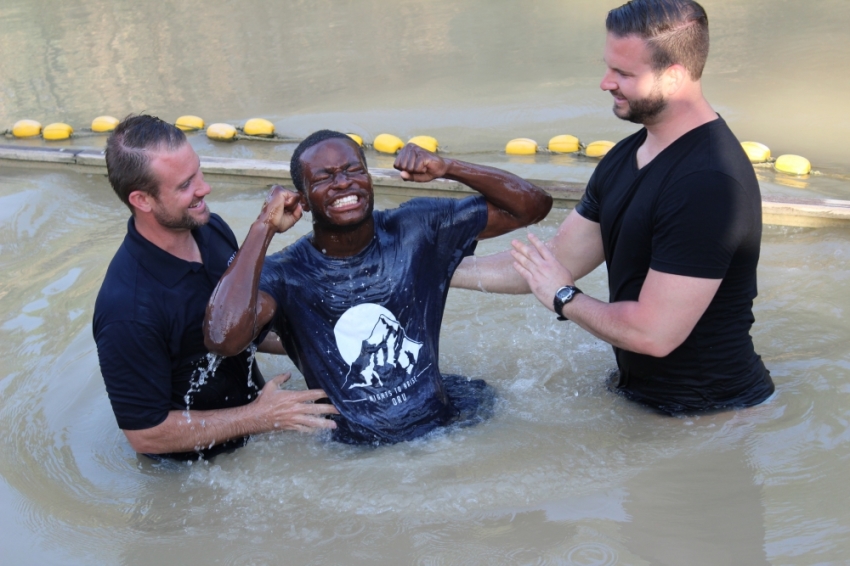Why should Christians be baptized?

Years ago, a machinist at Ford Motor Company in Detroit became a Christian and was baptized. He took his baptism seriously. He had been stealing parts and tools from Ford for years.
The morning after his baptism, he took all the stolen parts and tools back to his boss. He explained his situation and his recent conversion and baptism, and then he asked for forgiveness.
This response by an employee was without precedent.
Mr. Ford was visiting a European plant at the time, but he was cabled concerning the details of this matter. His response was requested. Mr. Ford immediately returned a cable with his decision: “Dam up the Detroit River, and baptize the entire city.”
Jesus went even further.
In his Great Commission, he ordered his church to baptize all nations (Matthew 28:19).
Why?
Over the years, I have spoken to hundreds of people about this issue. And some don’t understand why baptism is so important.
Perhaps you’re asking the same question.
Or perhaps you’ve been baptized in your church’s tradition but still have questions about your experience.
So let’s see why baptism matters.
What is baptism?
The word baptize comes from a Greek word which means to “dip” or “immerse.”
The word was often used in the ancient world to describe the act of dipping a cup in a stream or washing clothing at a laundry. To “baptize” something is, therefore, literally to immerse it in water.
John the Baptist was the first person in the New Testament to baptize people. He immersed those who repented publicly from their sins and wanted to follow God in faith. Their baptism took place in the Jordan River as a witness to their community.
When Jesus began his public ministry, he did so with his baptism by John. Of course, he was not repenting of sin since he is the sinless Son of God. Rather, he was giving public witness to his faith in his Father and supporting John’s work of preaching and baptizing.
Later, Jesus commanded his disciples to continue this work of baptism: “Go and make disciples of all nations, baptizing them in the name of the Father and of the Son and of the Holy Spirit” (Matthew 28:19).
Baptism thus began with John and is commanded by Jesus Christ for us today.
Why should Christians be baptized?
Christian denominations vary widely in their understanding of baptism and its significance.
The Catholic tradition views baptism as the first sacrament children receive, a step by which they begin their journey in the Christian faith. Some Protestant traditions similarly view infant baptism as an act of faith on the part of believing parents, a kind of New Testament circumcision.
Churches who baptize believers by immersion do so for the following reasons.
1. We view baptism as an act of obedience.
Jesus commanded us to baptize every person who becomes his disciple.
The early church followed this command very carefully, baptizing those who became Christians at Pentecost (Acts 2:41) and those who trusted Christ as a result of personal witnessing (Acts 8:38).
Baptism does not make us Christians, but it is a very important response to God’s call to obedience. And it is a call only believers can answer.
2. Baptism is an act of witness.
By baptism, we tell others of our new life in Jesus Christ.
Again, baptism does not create this life; the water does not wash away our sins, nor must we be baptized to be saved. Rather, baptism shows others that we have already received this salvation.
In the act of immersion, we are laid under water to symbolize the burial of the “old person” we were before trusting Christ as Lord. We are then raised out of the water to symbolize the resurrection of the “new person” we are now in Christ.
This symbolism is best portrayed by the immersion of those who have trusted Jesus personally (see Romans 6:4-5).
Traditions that practice infant baptism do so to dedicate children to God upon the faith of their parents. However, the only baptisms described in the New Testament involved persons who had come to personal faith in Christ as Lord.
And so churches that practice the immersion of Christians believe they are continuing the New Testament model. In my Baptist tradition, we explain to those who were baptized as infants that their immersion as a believer in no way invalidates the faith their parents demonstrated in baptizing their child. Rather, it completes their dedication as the person makes public his or her own faith commitment.
Can someone be saved without being baptized?
Baptism is an important act of obedience, but it is not the essential requirement for salvation.
The thief on the cross at Jesus’ side, the moment he made Christ his Lord, was promised: “Today you will be with me in paradise” (Luke 23:43). Though he could not be baptized, he could trust in Jesus.
All who have followed his example, whatever their baptism tradition, are children of the same Father and members of the same family.
I often explain baptism as a wedding ring. Wearing such a ring does not make us married. Nor does the absence of a wedding ring prove that we are not married. Rather, a ring shows the world our marital status. It is a public symbol of a personal commitment.
So it is with our baptism as Christians: we tell the world that Jesus is our Lord, inviting others to join our faith.
If those who witness our baptism trust Christ because we have, our baptism fulfills its most significant purpose, to the glory of God.
Originally posted at Denison Forum.



























